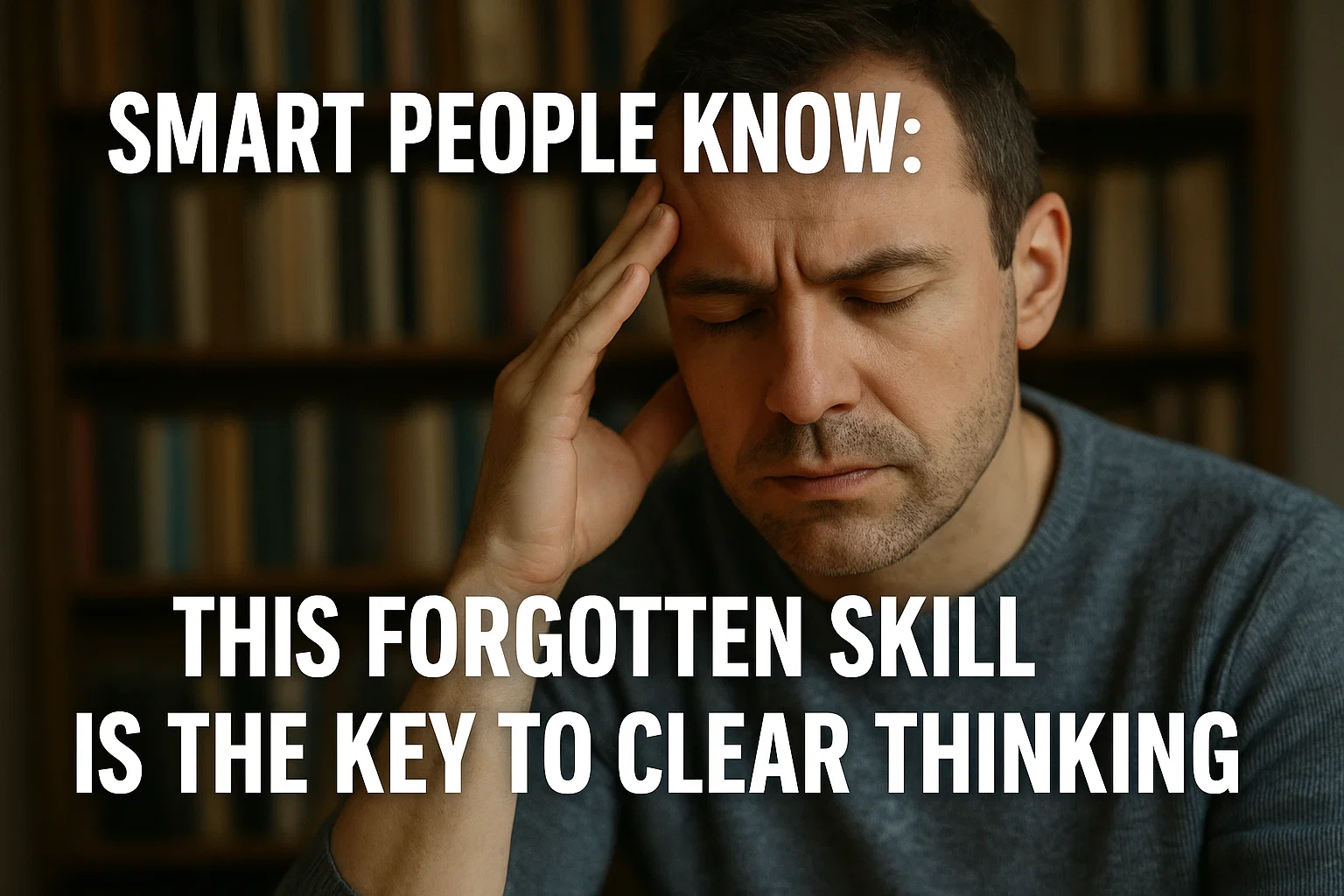For decades, researchers noticed something fascinating: average IQ scores kept rising year after year. Known as the Flynn Effect, this phenomenon reflected humanity’s progress in nutrition, healthcare, and education. But around the year 2000, something changed. Instead of rising, IQ scores began to decline across developed nations. Studies from Norway, France, and the United States show measurable drops in cognitive performance, suggesting that our ability for deep thinking may be weakening in today’s fast-paced world.
The surprising part? It’s not genetics. Research involving more than 730,000 individuals in Norway concluded that the decline is environmental. In other words, something about the way we live, work, and think today—without enough deep thinking—is slowly eroding our mental sharpness.
So, what’s the missing link? The skill that many dismissed as “useless” is now emerging as the very foundation of clear thinking: the ability to focus deeply without distraction.
The Forgotten Skill: Deep, Undistracted Thinking
In a world dominated by smartphones, instant notifications, and endless scrolling, uninterrupted focus has become rare. Yet, the smartest thinkers throughout history — Einstein, Newton, and even modern-day innovators — relied on deep thinking and focused work to achieve their breakthroughs.
Deep thinking is not about doing more; it’s about creating the mental space to connect ideas, solve complex problems, and develop clarity. Psychologist Cal Newport, author of Deep Work, argues that the ability to concentrate without distraction is one of the most valuable yet increasingly rare skills in today’s economy.
This is the very skill many of us are losing, thanks to the same technology that promises to make us smarter.

Why Technology Is Making Us Dumber
Technology gives us incredible access to information. But too much of a good thing quickly turns harmful. Here’s why:
- Information Overload We consume more content in a single day than people 100 years ago did in a month. But shallow reading prevents deep comprehension.
- Shortened Attention Span – Studies show the average human attention span has dropped from 12 seconds in 2000 to just 8 seconds today (Microsoft Study).
- Cognitive Offloading – We outsource memory to Google, navigation to GPS, and even opinions to algorithms. While convenient, this reduces our brain’s natural problem-solving capacity.
- Constant Distractions – Notifications, social media, and multitasking fragment our ability to sustain focus. Neuroscience shows it takes over 20 minutes to refocus after a single interruption.
In short, the more we lean on technology for thinking, the less thinking we actually do.
Evidence of Cognitive Decline
The 2023 evidence synthesis confirmed measurable declines in U.S. cognitive performance, with average IQ scores falling since the late 1990s. Similar patterns appear across Europe:
- France: A four point drop in IQ over a decade.
- Norway: Sustained cognitive decline across multiple generations.
- United States: Declines in reasoning and memory performance.
This is not a coincidence. As societies become more digitally dependent, the ability to think independently and deeply is eroding.
Why Smart People Obsess Over Focus
The smartest people I know are not obsessed with downloading more apps, reading more news, or chasing productivity hacks. Instead, they are obsessed with one timeless skill protecting their attention.
They know that:
- Focus creates clarity – Deep concentration allows the brain to connect dots others miss.
- Attention is currency – In a world where every company fights for our screen time, controlling your attention is a form of power.
- Less noise means better decisions – The ability to filter distractions leads to wiser choices in business and life.
As neuroscientist Daniel Levitin explains in The Organized Mind (source), managing attention is more important than managing time.
How to Rebuild the Skill of Deep Thinking
If cognitive decline is environmental, that means we can reverse it by changing our environment. Here are proven strategies:
1. Practice Digital Minimalism
Reduce unnecessary apps, turn off non essential notifications, and set screen-free hours daily. (Learn more)
2. Schedule Deep Work Sessions
Block 60 90 minutes daily for uninterrupted work no phone, no internet. This trains your brain to focus.
3. Relearn Boredom
Instead of reaching for your phone every idle moment, allow your mind to wander. Boredom sparks creativity.
4. Prioritize Sleep & Nutrition
Cognitive performance depends heavily on rest, hydration, and a nutrient rich diet (Harvard Health).
5. Journal or Meditate
Both practices strengthen metacognition the ability to think about your own thinking.
Why This Matters for the Future
In a knowledge economy, deep thinking and clear focus are true superpowers. AI, algorithms, and automation can process data faster than any human, but they cannot replace the depth of human insight, creativity, and wisdom that comes from focused attention.
The irony is clear: the more we allow technology to think for us, the less capable we become. But the more we train ourselves in this “forgotten skill,” the sharper and smarter we get.Read More
Final Thoughts
The decline in IQ is not destiny—it’s a wake-up call. The very same environmental factors causing mental decline can be changed. The forgotten skill of deep thinking and focused attention is not just a productivity hack—it’s a survival strategy for the modern world.
The smartest people already know this truth: clear thinking requires protecting your attention. In the future, those who can master deep thinking will lead, create, and solve problems in ways distracted minds never can.
So, the next time you catch yourself mindlessly scrolling, remember every moment of attention you reclaim is a step toward becoming smarter. Read More

